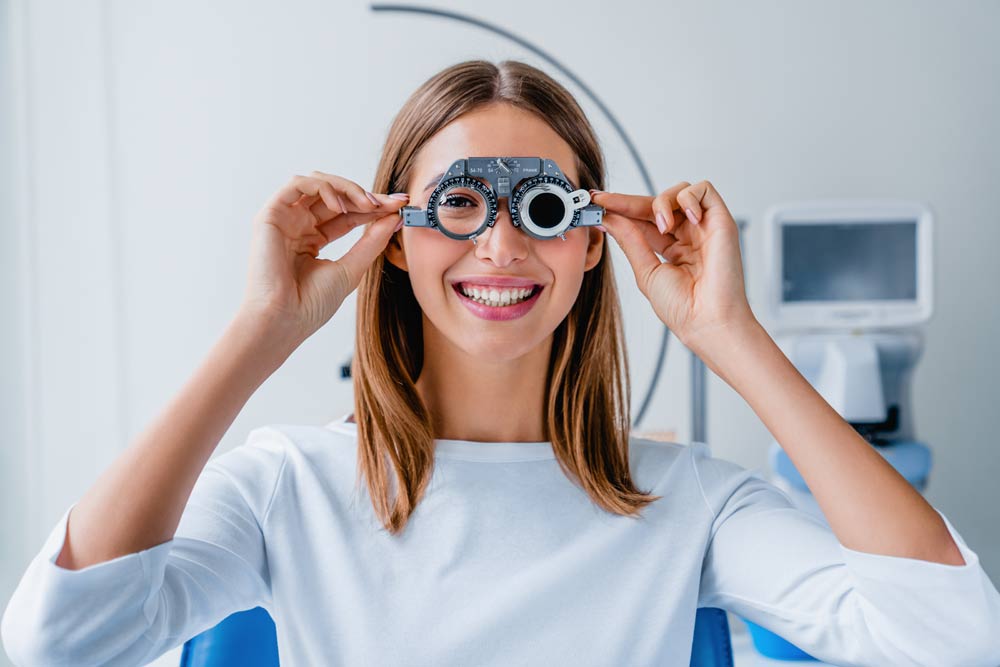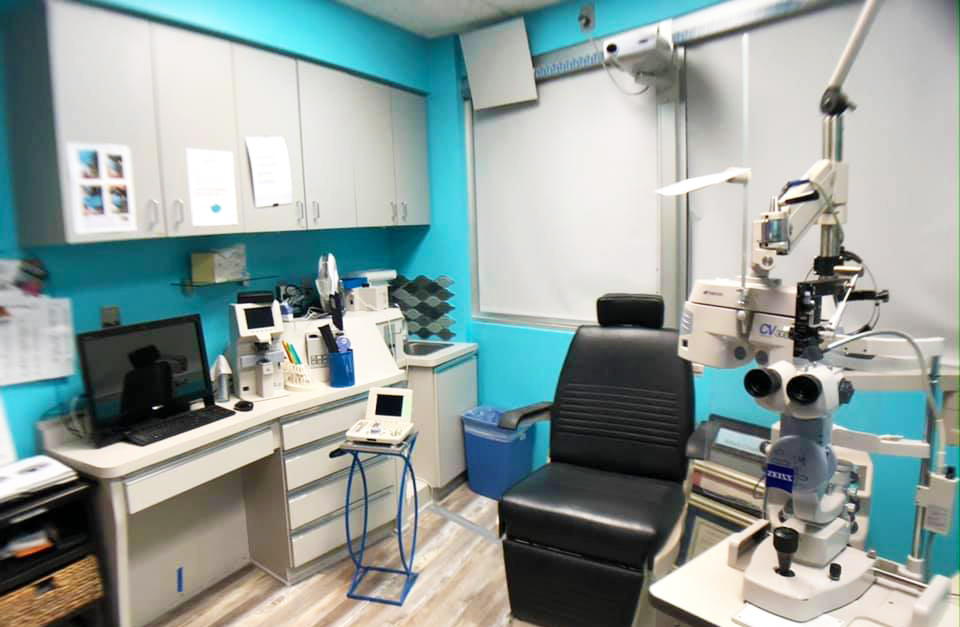Lawrenceville, GA
Comprehensive Eye Exam

Lawrenceville, GA
Comprehensive Eye Exam
Eye exams are a key component of overall wellness and maintaining eye health. At your comprehensive eye exam at our office in Lawrenceville, your optometrist will assess your visual acuity as well as test for common eye diseases, check how your eyes work together and separately, and evaluate the health of your retina and optic nerve.
Routine eye exams are not only necessary to assess your need for glasses and contacts but also to detect many eye diseases that initially do not have any symptoms. One such disease is glaucoma which is associated with higher-than-normal eye pressure and can eventually lead to peripheral vision loss and blindness if not treated promptly. Many systemic diseases such as diabetes, hypertension, kidney disease, and thyroid disease also affect the eyes and as a result, yearly exams are essential in these cases.
Who Should Get a Comprehensive Eye Exam?
Routine eye exams are important for both children and adults, as they are vital in promoting healthy visual development and catching any eye issues before they develop into more serious problems. Eye exams play an important role in healthy vision and it is recommended that they be conducted every year. We offer comprehensive eye exams for adults as well as comprehensive pediatric eye exams for children.
What Does a Comprehensive Eye Exam Include?
At Lawrenceville Family Eyecare, your eye health and vision are our top priority. Our experienced eye doctor will work with you to fully assess your eye health and vision. While tests will vary based on your eyes and your medical history, most comprehensive eye exams include the following:
- Assessment of visual acuity (the sharpness of your vision) and determining your correct eyeglass prescription
- Visual field test to determine if you have blind spots or peripheral vision issues
- Cover test, which identifies crossed eyes or binocular vision problems
- Slit lamp exam to detect common eye diseases and conditions
- Glaucoma test, which measures the pressure within your eye

What Are the Benefits of a Routine Eye Exam?
At your eye exam in Lawrenceville, your doctor will provide you with immediate feedback about your vision and the health of your eyes. He will test for nearsightedness, farsightedness, astigmatism, focusing problems, other vision issues, and eye diseases.
Healthy eyes and vision require regular maintenance and care. Neglecting to get your eyes checked by a qualified optometrist can lead to the development of eye issues that can progress over time and have significant long-term effects, including blindness. Certain diseases such as glaucoma, macular degeneration, and diabetic retinopathy have no symptoms in the early stages—they can develop slowly and without pain. If left undiagnosed, these diseases often have irreversible consequences. Seeing an eye doctor regularly can protect your vision through early diagnosis and treatment.
Our eye doctor is here to help you achieve clear vision and live your most high-quality life. Make your healthy vision a priority and contact our office to schedule your next comprehensive eye exam.
Can I do an eye exam online?
Online vision testing is not very accurate and cannot replace your regular visits to your eye doctor because they don’t check the health of your eyes. As a result, sight-threatening conditions such as cataracts, glaucoma, and macular degeneration can be missed.
What is included in an eye exam?
A comprehensive eye exam not only includes checking your vision to see if glasses are needed or not but also includes assessing the health of your eyes along with detailed health and family ocular history.
What diseases can be detected in an eye exam?
Cataracts, glaucoma, macular degeneration, keratoconus, and a range of other diseases can be detected during an eye exam.
How often do I need an eye exam?
It is recommended to get yearly eye exams after you reach forty.
Is it necessary for the doctor to dilate my pupils during the exam?
In most cases, ultra-widefield retinal imaging (Optomap® retinal exams) can replace dilation but it is still a good idea to get your eyes dilated every few years. In some cases, such as being very nearsighted, dilation is still necessary.
